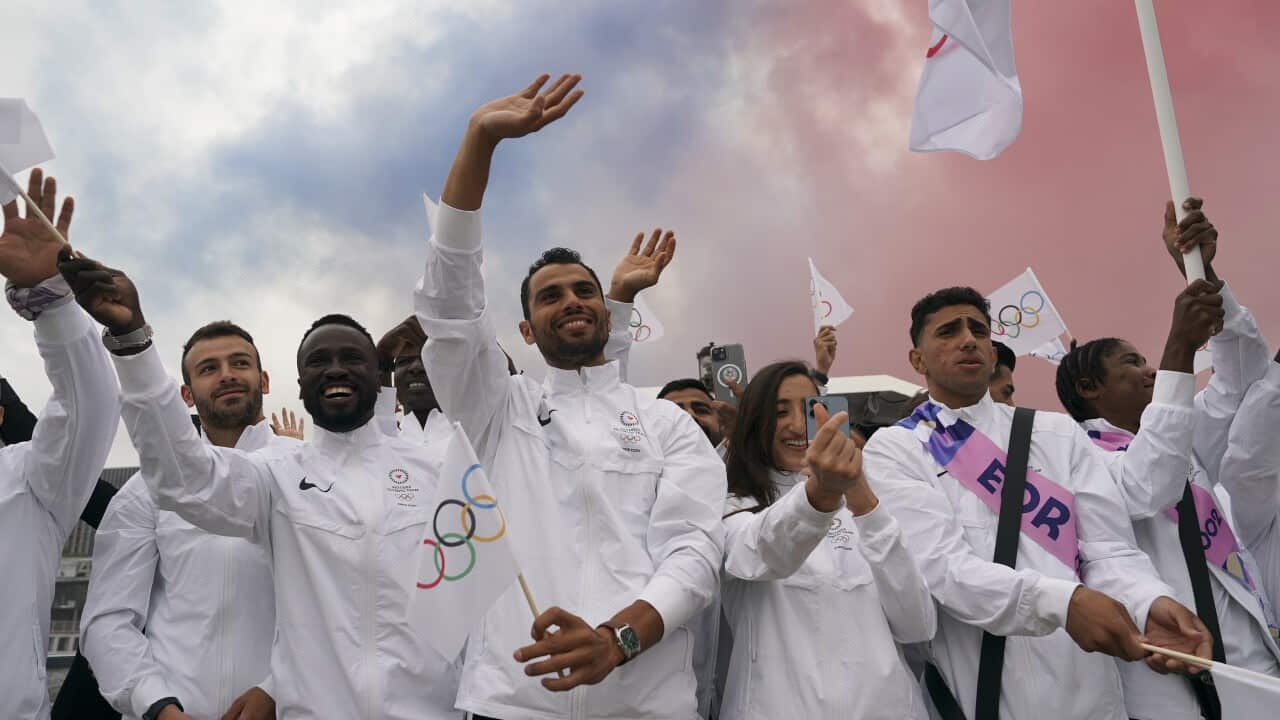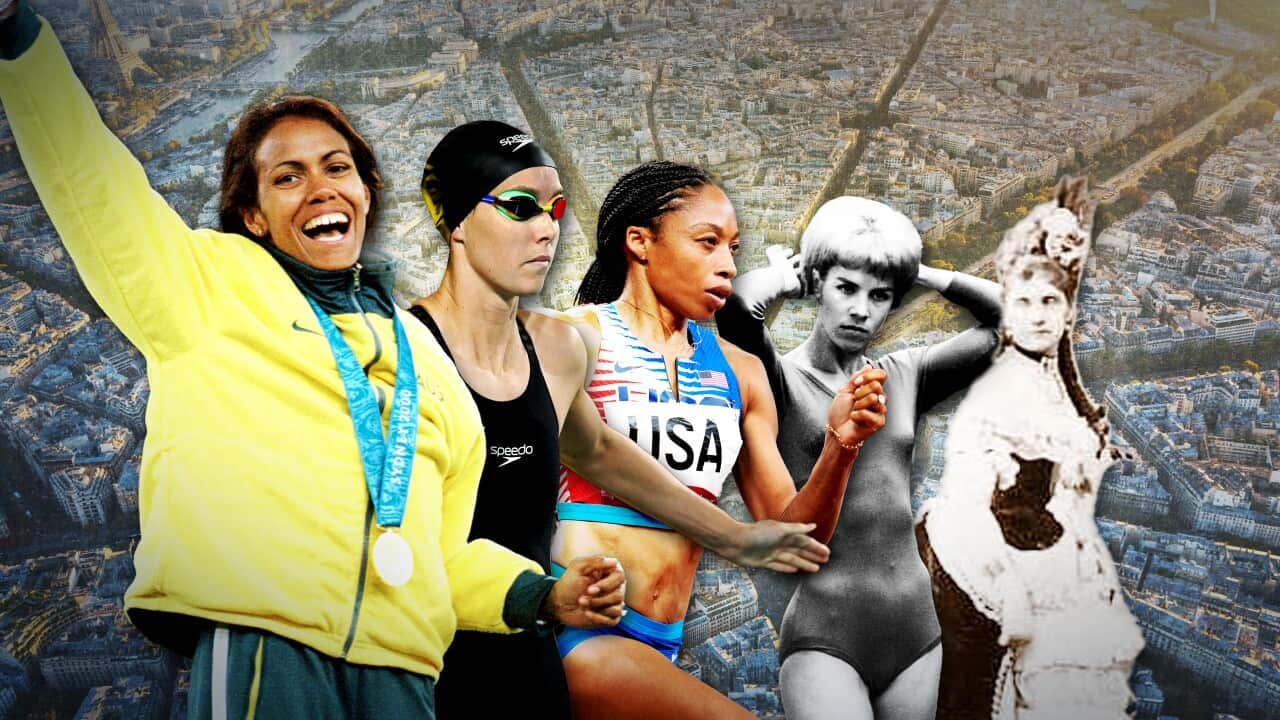Key Points
- We are proud refugees but also athletes with Olympic dreams, the team's flag bearers said.
- The team goes by the abbreviation EOR for Equipe Olympique des Réfugiés -- the French term for Refugee Olympic Team.
- The IOC unveiled its first refugee team for the Rio 2016 Games with 10 athletes to raise awareness of the issue.
Members of the Refugee Olympic Team will have their voices heard around the world , increasing awareness for millions of displaced people.
But they are equally ambitious in the hunt for medals, the team's flag bearers said.
Here's what we know about them:
Who's on the team?
The International Olympic Committee (IOC) has assembled its largest refugee team to date for the 2024 Games starting on Friday, with 37 athletes.
The athletes, from countries including Syria, Sudan, Cameroon, Ethiopia, Iran and Afghanistan, will compete across 12 sports in Paris, the third time such a team has been formed for the Summer Olympics.
"Just for our name 'refugee Olympic team' to be called out, refugees all around the world will acknowledge us," Cameroon-born boxer Cindy Ngamba, currently based in Britain, told Reuters.

Members of the Refugee Olympic team attend the opening ceremony of the 2024 Summer Olympics in Paris, France on Friday. Source: AAP / Lui Siu Wai/AP
"We are not afraid, not ashamed and are proud to be refugees. We know we are not with them but we can feel the energy."
How was the team created?
The IOC unveiled its first refugee team for the Rio 2016 Games with 10 athletes to raise awareness of the issue as hundreds of thousands of people were pouring into Europe from the Middle East and elsewhere escaping conflict and poverty.
It's a team everyone can support.Masomah Ali Zada, head of this year's Olympic refugee team.
The team that competed at the Tokyo 2020 Olympics, held in 2021 due to the COVID-19 pandemic, was already almost three times bigger than the Rio team, with 29 athletes.
But the team in Paris is the largest while also having its own emblem.
"It matters 100%," Ngamba said of the emblem. "The foundation is about the team, about a family. Being part of the unique family is what it is all about.
"It shows we are not just refugees, we are athletes. (People) see us as refugees but forget we are athletes with the same goals as the other countries represented here."
Why the refugee squad is a powerful symbol of unity
The Taliban may have banned women from sport in Afghanistan, but Masomah Ali Zada — head of this year's Olympic refugee team — is determined to keep championing their rights from her adopted home in France.
Three years ago, Ali Zada, 28, became the first Afghan cyclist to compete in the Olympics after winning a spot in the refugee team at the Tokyo Games.

Masomah Ali Zada says the refugee team will send a powerful message of peace, solidarity and inclusion. Source: AAP / Andre Pain/EPA
"It's a team everyone can support," she said. "We would also like to inspire other refugees and give them hope that one day things will change."
For co-flagbearer Yahya Al Ghotany, who was forced to leave war-torn Syria and will compete in taekwondo, the team was sending a message of hope.
Al Ghotany only picked up the sport once he was at a refugee camp in Jordan.
"It is a wonderful feeling knowing I am representing many people who have gone through the same experience as me, just like me," he told Reuters.
"Representing more than 100 million displaced people across the globe."
"It is very important because it sends a message of hope. There is always hope in passion," he added.
Nobody on the two previous refugee teams has won a medal, but Ali Zada hopes Paris will change that.
"I've suffered a lot of discrimination in my life, so I'm very proud to be (leading) a team where we are all from different countries, but are all respected in the same way," said Ali Zada, who will not race in these Games.
"It's very moving."











